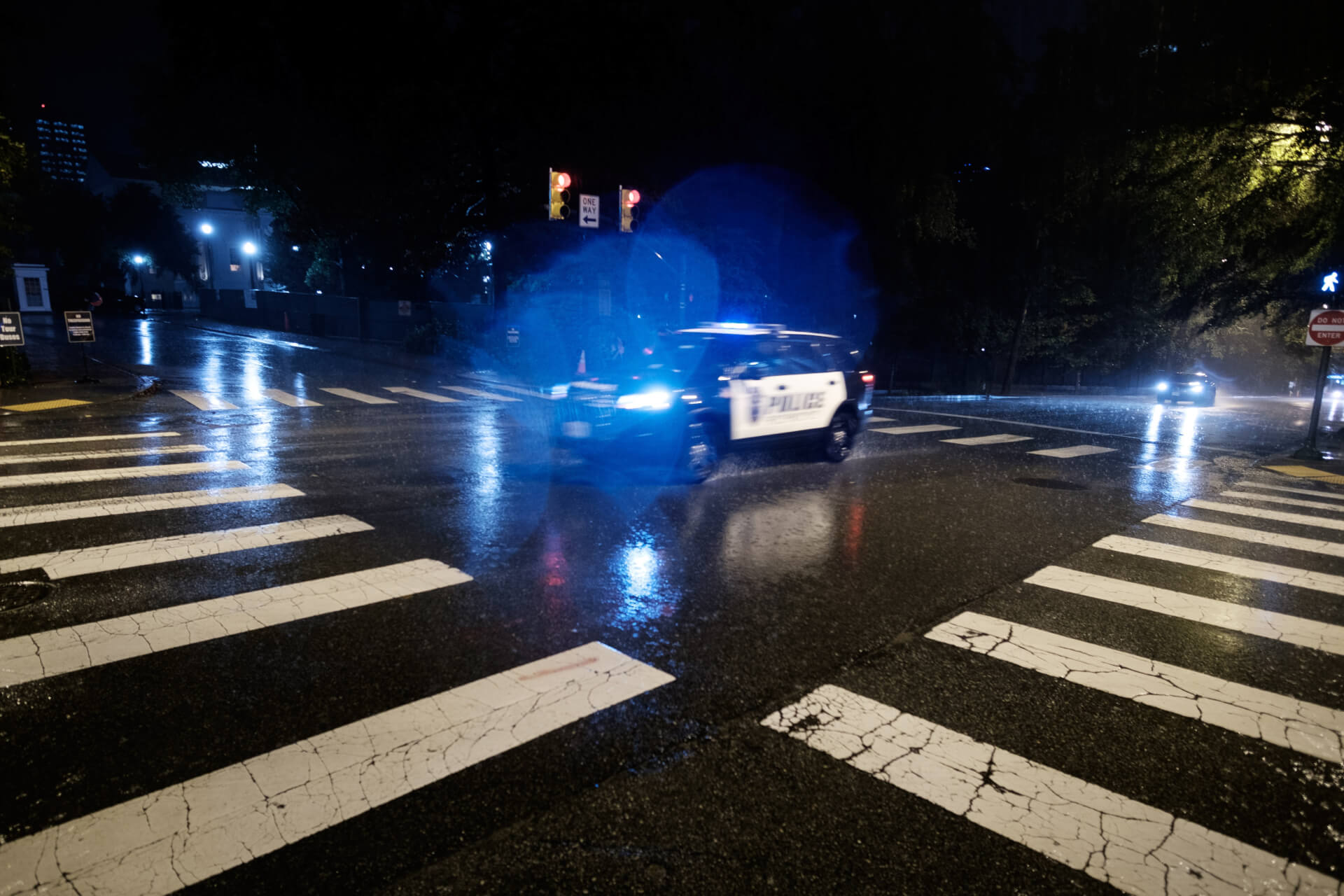By Kate Masters
(VM) – Since 2019, Virginia has spent millions of dollars rolling out an alternative transportation program intended to reduce the role of law enforcement in driving patients to state mental hospitals and other psychiatric facilities.
Under a contract with the state, the security company Allied Universal is tasked with building capacity to eventually transport 50 percent of patients committed for treatment under what’s known as a temporary detention order, or TDO — issued in cases when the person is unwilling to seek care but poses a danger to themselves or others.
But over time, the number of transports provided by the company has actually decreased. Prior to the COVID-19 pandemic, Allied was consistently driving 25 to 30 percent of patients in Southwest and southern Virginia, the first region where the program was fully implemented, according to Gail Paysour, the alternative transportation coordinator for the state’s Department of Behavioral Health and Developmental Services. As the program rolled out across the state, its capacity also dropped, and by 2021, Allied was only providing 10 to 12 percent of TDO transports across Virginia.
Advocates say the struggling program illustrates Virginia’s continued failure to meaningfully reform its mental health services. Unlike most police transports, Allied does not restrain patients during drives, and Paysour said the service was intended as a more compassionate way to get them to needed inpatient treatment.
But the program was also intended to be a relief for law enforcement officers, who were previously responsible for transporting virtually all of the state’s TDO patients. Amid a critical shortage of psychiatric beds, that often means driving hours across the state to drop patients off at the nearest hospital with an opening.
“When you have to transport someone from Abingdon to Petersburg, that’s an issue,” said Dana Schrad, executive director of the Virginia Association of Chiefs of Police. Currently, though, she said the program is doing little to relieve the pressure on officers.
That hasn’t stopped lawmakers from trying to expand its scope. Originally, Allied only stepped in to transport patients once an inpatient bed had been found. But under new legislation that went into effect at the start of July, law enforcement officers can now transfer custody of patients immediately after a TDO is issued.
That means Allied workers would be the ones sitting with patients while they waited for a bed — something Paysour said the company is unable to do.
“Because the staff does not have an ability to restrain or anything like that, maintaining custody for long periods of someone who may become highly disregulated is not something they’re prepared to do ,” she said. “Nor is it part of their current contract.”
The struggle to boost alternative transportation services, and extend the program to patient custody, underscores broader challenges within Virginia’s mental health infrastructure. Allied, like virtually all providers, is currently struggling to recruit and retain staff, limiting the availability of its services.
As of July 8, Paysour said there was a 20 percent vacancy rate for transport workers in Virginia, which — while an improvement over December’s numbers — made it nearly impossible for the company to respond to more requests.
“It really just goes back to the difficulty of hiring someone for a job they have to cover 24/7, 365 days a year,” she said. “When we began, the salaries were competitive. But as time has gone on, we’ve had to re-examine that.”
Eligibility is another limiting factor. Because Allied drivers don’t restrain clients, alternative transportation services are only approved for patients who don’t show signs of aggression. But given the current bed shortage, most Virginians with a TDO are waiting at least two days (and sometimes far longer) to be admitted — time they typically spend stuck in local emergency rooms. The stress of waiting can exacerbate mental health symptoms, Paysour said, so by the time a bed is found, many patients are no longer eligible for Allied’s services.
The COVID-19 pandemic also reduced already limited bed space and delayed the agency’s outreach and training to law enforcement and local magistrates. Schrad said some courts still don’t seem to know that alternative transportation services are now available across the state.
But funding has also been inadequate. Until recently, Virginia paid $4.5 million yearly for its contract with Allied, which — according to analysis by the state’s Department of Planning and Budget — was not enough for the company to cover 50 percent of TDO transports across Virginia.

Virginia’s current budget increased that funding by roughly $2 million, but DBHDS now estimates it would cost more than $16 million to extend the company’s services for the full duration of patient custody.
“It makes me wonder whether we need to go back and re-evaluate the program from the ground up,” said Sen. Creigh Deeds, D-Bath, the chair of the state’s Behavioral Health Commission. “Maybe our expectations were not reasonable in the first place.”
Paysour said the agency is also re-examining its contract with Allied, including whether it was overly ambitious to set a goal of providing half of all TDO transports across the state. The company is also considering retention bonuses, and there’s been discussion of implementing restraints in order to accommodate patients with higher behavioral health needs.
But both she and Schrad said the current reliance on law enforcement traces back to deeper problems within Virginia’s mental health system. Schrad said policymakers have never fully invested in the type of community programs that can truly reduce psychiatric hospitalizations — and the need for officers to drive patients to those beds. Without those services, which can include stabilization centers and mobile crisis teams, she said it’s unlikely that demand for transportation will drop anytime soon.
“We need smaller programs, sprinkled across the state, so someone is not driven for hours in a police car while they’re in crisis,” Schrad said. “But right now, we’re just scratching the surface.”



